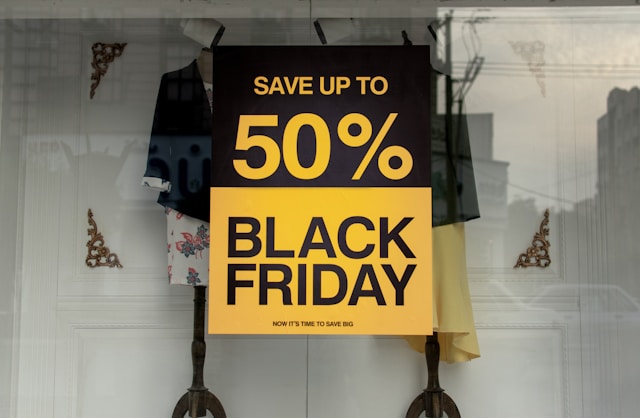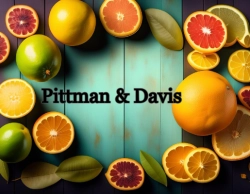What Is Black Friday? The History and Hype Behind the Biggest Shopping Day of the Year

Black Friday is most celebrated as a shopping day during which there are significant discounts on electronics and clothing. It started as a very minimal holiday event but has today become a worldwide phenomenon, providing a dynamic thriller. This article tells its history, why it has become popular worldwide, and what effects it brings on the economy and buyers.
The History of Black Friday
The term "Black Friday" didn't always refer to the enjoyment-filled shopping day it does today. It originated in the early 1900s, and there are mixed reports about where the name originally came from.
- The Police Version: The Philadelphia Police Department was the first to provide Black Friday in the 1950s. A lot of people came to the city because of the Army-Navy game on Thanksgiving. It was chaos for the police as the huge number of people resulted in confusion and millions of shoppers. The crowded roads, traffic, and lots of shoppers made today hard and stressful for the police. The term had a bad meaning, showing the tiredness and frustration of the police.
- The Financial Version: Also another term for the birth of the name is based on the financial contribution from accountants. They typically use black ink for profits and red ink for losses. Stores made money in-store on Fridays after Thanksgiving during the 1960s. It marked that era's prosperous shopping day that initiated a money-making holiday season. The shop owners would know excitement in buying aided them to earn a lot of money.
The Rise of Black Friday: From Regional to National Phenomenon
Black Friday, originally known in Philadelphia in the 1950s and 1960s, became nationally popular in the 1980s.
- Marketing and Retail Push: Stores saw the scope of turning Black Friday into a national buying day during the 1980s. After Thanksgiving, huge discounts in U.S. stores started playing their magic. Long before people began getting excited about Black Friday, ordinary advertisers used this growing attraction for Black Friday.
- The Evolution of Doorbusters: The concept of "doorbusters" or special deals on popular items for a short time became a vital part of Black Friday. Stores opened earlier on the Friday after Thanksgiving so that shoppers could get access to special deals. Stores started opening even earlier by the 2000s, sometimes even overnight, even on Thanksgiving. Now, it was an even more rushed feeling when shopping for Black Friday.
- Black Friday on the Internet: The internet also transformed the way Black Friday functions. By the mid-2000s, eCommerce started gaining momentum. Retailers such as Amazon, eBay, and Walmart began sending out Black Friday deals that customers could access from home indulgence. This day, after Black Friday, had more sales than Thanksgiving because it was a big online shopping day.
The Hype and Consumer Behavior
Black Friday's popularity stems from a want to shop and good advertising by shops.
- The Psychology of a Deal: People go to Black Friday sales not only for the discounts but also for the fun of getting a good bargain. Those going shopping tend to love the potential 'find' of getting something long desired at a good price. Black Friday becomes essential due to its scarcity and limited time a buyer has. This causes excitement and irrepressible restlessness; campers sleep outside shops or rush in at opening time.
- FOMO - The Fear of Missing Out: The fear of missing out, or FOMO, makes people more eager to shop on Black Friday. Social media amplifies fear because sharing good deals encourages others to rush to buy similar products. Black Friday is more than just shopping for deals; it's also about participating in a popular event. People feel compelled to wake up early and wait in long lines because they fear missing a good deal.
- The Social Aspect: A lot of people see Black Friday shopping as an opportunity to spend time together. Families and friends make plans to shop together, making it a fun group activity. Having fun with friends and family while relishing a deal makes the day all the more enjoyable.
- Marketing and the Hype Machine: Companies will start advertising deals placed on Black Friday along with special e-mail offers three or four weeks beforehand. The hype created around the event gives it a look as if you can't miss it. It is also because of the variety and richness in the number of deals that are provided. Consumers flock to big stores and big brands for the sole reason that the items they like might sell out fast.
Black Friday's Global Impact
Black Friday started in the United States, but now it is popular all over the world. Stores in Canada, the UK, Australia, and some places in Asia now celebrate Black Friday, having similar sales and deals. Black Friday is not just a day for shopping; it has turned into a big worldwide event.
- Black Friday in Canada and the UK: In Canada, Black Friday sales have become very popular lately, especially because more people are shopping online. Canadian shoppers know more about U.S. sales, thanks to the Internet and TV, and stores offer large discounts now. In the United Kingdom, Black Friday has become more popular. At first, people were against the idea, but in the last ten years, British shoppers have accepted the deals. This trend got a boost because big stores like Amazon and Argos started Black Friday sales. Now, stores often have big discounts both online and in their physical shops.
- The Rise of Cyber Monday and Global Shopping Events: In the past few years, Cyber Monday has become a big shopping day. Originally, it began as a way to take advantage of the rise in online shopping. Now, it is just as big as Black Friday, with discounts on online stores all over the world. Stores often put together Black Friday and Cyber Monday sales, calling it "Cyber Week." This has resulted in longer sales periods and even more excitement.
Black Friday's Effect on the Economy
The economic effects of Black Friday are very important. For store owners, this is a very important time of year. The money they make now can decide if they do well or not for the whole holiday season.
- Boosting Retail Sales: Black Friday is a big help for stores, bringing in a lot of money, worth billions of dollars. The National Retail Federation (NRF) says that over 100 million people go shopping on Black Friday each year. On average, each person spends about $400 on things like electronics and clothes. Black Friday sales are crucial for many stores, making up a significant portion of their yearly income.
- Supply Chain and Labor Impact: Black Friday's busy shopping affects the supply chain as stores aim to stock up on in-demand items. This can lead to excess inventory, resulting in waste and quick orders to match customer demands. Many retail workers have to work long hours, including overnight shifts and on Thanksgiving Day. This has sparked discussions about their working conditions and how Black Friday affects their rights as workers.
- Post-Black Friday Trends: The economic impact of Black Friday goes beyond just that day. The excitement continues into December, resulting in high sales during the holiday season. With more online shopping and mobile app use, stores constantly innovate to attract customers after Black Friday.
Conclusion
Black Friday has grown into a global shopping event due to effective marketing and consumer interest. Stores are starting the holiday shopping season, offering significant discounts on various items. The event also raises concerns about employee well-being, environmental impact, and the pressure to participate in shopping. As Black Friday keeps getting bigger, it will probably change how stores sell things and how people shop. Its lasting impact will depend on finding a balance between excitement and being good for the environment.











